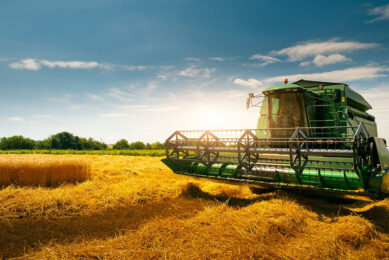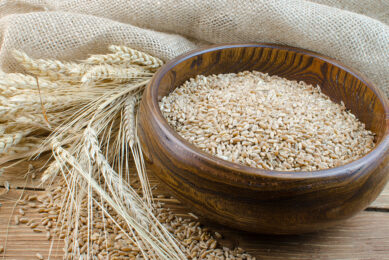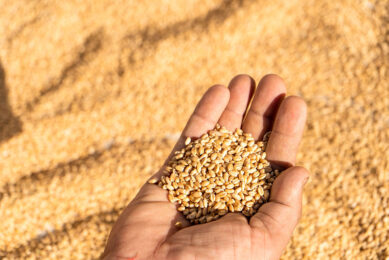EU wheat stocks to reach five-year high
A strong harvest will lift Europe’s wheat stocks to their highest in five years, despite better hopes for exports as output in rival Black Sea producers fades.
European Union wheat output currently looks on course to rise by 4.1% to 144.5m tonnes this year, despite a small drop in sowings. Hungarian farmers switch to corn and Bulgarian and Romanian growers to rapeseed, a report from US officials in Europe said.
And it could get even closer to the 151m-tonne record set two years ago, given the growing hopes for French, German and UK crops.
The strong cold winter with a lot of snow – meaning little or no damage to the crops – was beneficial, especially in the eastern countries of the EU.
Biofuel demand
Rising use of wheat as an animal feed, and for processing by bioethanol plants, will mop up some of the extra supply.
Indeed, with one bioethanol plant opening in the north of England last year, and another on stream for 2011, and with Benelux countries also increasing their capacity, Europe’s industrial use of wheat "is forecast to continue to trend upwards for the foreseeable future".
Exports will also rise, by 1m tonnes to 21m tonnes, helped by a revival in demand among key North African importers, which enjoyed bumper domestic crops last year, and expectations – among some forecasters – of weaker crops in Kazakhstan, Russia and Ukraine.
"The forecast fall in production volumes in North Africa and the Black Sea are expected to see the EU remaining a significant player on export markets," the briefing of the US attaché said, noting the impact of a weaker euro in boosting trade this spring.
"France has reported a strong pace of exports through to end-March. Germany has also reported a good export pace including expectations of up to 1m tonnes of sales to South Africa."
Nonetheless, the EU will end 2010-11 with wheat stocks of 19.1m tonnes, the highest for five years defying a global trend which many forecasters believe will see a fall in inventories.
Barley down
The report also echoed other commentators in forecasting a fall in barley production, estimating a fall of nearly 2.5m tonnes to 59.0m tonnes.
"As compared to wheat, a larger proportion of the EU barley crop is spring sown, so the recent low prices and supply and demand situation have had a negative effect on plantings," the briefing said.
"Moreover, the persistent cold weather in March has also delayed these same plantings."
Corn is expected to pick up some of the slack, with production set to rise by 1.4m tonnes to 57.0m tonnes.
Source: Agrimoney












